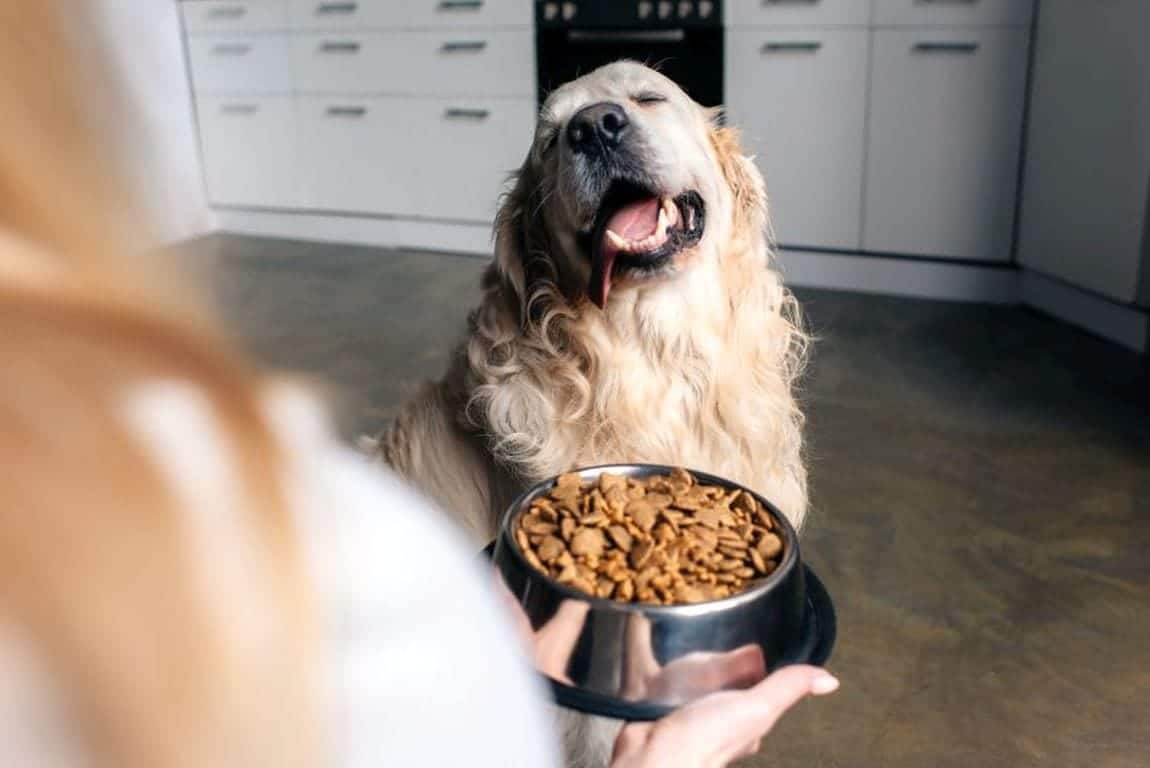Steak is a popular food in many households, and if you’re new to dog ownership, it’s natural to have concerns about the safety of feeding your dog steak and other common foods. Is steak safe for dogs to eat? The quick answer is yes. Your dog can eat steak, but there are some things to consider before incorporating it into your dog’s diet regularly. Join us as we examine the health benefits of feeding dogs raw bones steak without pepper and salt everyday to eat, as well as the best ways to cook steak.
Can Dogs Eat Steak?
Yes, dogs can eat steak in moderation as a treat on occasion. Plain steak is an excellent source of protein for dogs, as well as Omega-6. If the steak contains spices or flavorings such as garlic, onion, salt, or pepper, it is not suitable for dogs.
What is the best way to cook steak for dogs?
Remove any excess fat from the steak before roasting or grilling it for your dog. Simply trim the excess fat and place it on the roast or grill. Season the steak meat with nothing.
We recommend cooking your dog’s steak medium-well or well-done. After grilling it, set it aside for a few minutes to cool. When the steak has cooled sufficiently, cut it into small pieces to make it easier for your dogs to eat. Your pet will enjoy the taste of the steak meat alone, so leave out the spices and seasoning.
How to feed steak to dogs
If you are going to eat your dog steak, there are a few things you should keep in mind.
Cooked vs. raw
Giving dogs raw steak meat to eat is generally not a good idea. Uncooked meat may contain bacteria that are harmful to them. While eating raw meat is riskier for humans, it is still not ideal for dogs.
While some people feed raw meat to their dogs, it is somewhat risky. If you decide to feed raw meat to your dog, watch for signs of a negative reaction. This includes vomiting, loose stools, a loss of appetite, drowsiness, and diarrhea.
Include it in their food.
You can add some shredded steak to your dog’s regular food. They will surely devour it in a matter of seconds. Cut the steak into bite-sized pieces that your dog can easily eat. This is especially important if your dog is small. The last thing you want them to do is choke. This will also reduce the likelihood of any digestive issues, which can be quite unpleasant for your pet.
Seasonings should be avoided.
You mustn’t use any seasonings, sauces, or anything else on the steak that you feed to dogs. These substances may be toxic or cause stomach upset. You’ll want to keep things simple and stick to plain meat with no dressings.
Take out the bones.
If there are any bones in the steak, remove them before placing them in front of your dogs to eat. These bones may cause tooth damage or fracture and become lodged in your pet’s throat. If a bone fragment punctures your dog’s intestines, they may die. This is why you mustn’t serve them any bones with their steak.
Including vegetables
You might want to serve your dog some tasty and nutritious vegetables alongside the steak. Carrots, green beans, spinach, and Brussels sprouts are some of the best vegetables for dogs. This will provide a well-balanced meal for your adorable pet on a special occasion, such as their birthday.
Can Dogs eat Steak Bones?
Pet owners can feed raw steak bones to their dogs but not cooked bones. Raw bones can provide nutrients such as phosphorus, protein, and calcium, as well as support your pet’s dental health by aiding in the cleaning of your dog’s teeth. Cooked bones, on the other hand, can splinter and damage your dog’s stomach and digestive system, and bones from the local butcher with raw beef still on them may carry dangerous bacteria.
To avoid a choking hazard or a blockage in your dog’s intestines, only give your pet large bones. Whether you have a large or small dog, always keep an eye on them while they chew on the bone.
Can dogs eat cooked steak bones?
Cooked steak bones are never safe to eat with your dogs because they splinter more than raw bones. Dogs should not eat cooked rib bones, T-bone steak bones, or other cooked bones such as pork or chicken bones. A cooked bone can crack and break as your dog chews on it. These small bone fragments can wreak havoc on your dog’s digestive system and cause serious health issues. Cooked steak may also contain potentially harmful seasonings such as garlic or onion powder. Choose an uncooked bone that will not splinter in your dog’s mouth instead.
Health risks of steak bones for dogs
Before giving their dogs a T-bone or rib-eye steak bone to eat, pet owners should consider the health risks. Giving your dog bones can result in:
- Choking or intestinal blockage: Be mindful of the types of bones you feed your pet, and always keep a bone on them as they chew. Your dog may swallow a small bone whole or consume smaller chunks of bone, resulting in an intestinal blockage.
- Digestive issues: Raw meat on bones may contain harmful bacteria such as E. coli or salmonella, causing stomach upset, diarrhea, and vomiting.
- Intestinal damage: When your dog chews on bones, they can splinter. These splinters have the potential to enter your dog’s stomach and cause health risks or digestive issues. Cooked steak bones are especially prone to splintering, so only give your dog raw bones to chew on.
Health benefits of steak for dogs
Steak provides numerous nutritional benefits to both dogs and humans. It is high in vitamins, minerals, and amino acids, all of which contribute to a healthy body. The lean proteins in this meat can supplement your dog’s diet and help prevent a variety of future health issues. Beef’s omega-6 fatty acids can help your dog’s immune system while also improving the health and overall quality of their coat.
Can Dogs Eat Steak with Salt and Pepper
Dogs, contrary to popular belief, should not eat steak seasoning, salt, or pepper. You should avoid putting salt in your dog’s food because it can be harmful to them.
Are salt and pepper harmful to dogs?
We season dishes with seasonings, spices, and other ingredients to add flavor, but this should not be done with dogs. Onions, garlic, salt, and pepper are all highly toxic to dogs. If you intend to share the dog-safe ingredients listed below with your friends, keep in mind that they should all be plain and unseasoned.
Can dogs eat beef with salt?
Dogs will become ill if they are exposed to salt or spices in ground beef, according to Herman. Garlic and onions, in particular, can cause dehydration in dogs, so too much salt can exacerbate the problem. According to Herman, a high-fat diet can also cause vomiting, diarrhea, or even more serious diseases like pancreatitis.
Can dogs eat black pepper & salt?
It is generally recommended that you do not give dogs steak with salt and black pepper to eat. There is no need to use a lot of salt or pepper because it can be eaten in small amounts. When it comes to food, most dogs prefer it to be black pepper-free.
Can Dogs Eat Steak Raw
No, dogs should not eat raw steak everyday. Is raw steak suitable for dogs? Raw steak is not suitable for dogs. Raw or uncooked steak contains a wide range of microorganisms, including Listeria and Salmonella, as well as other potentially harmful bacteria.
Also, if you put the raw steak in their dog’s food bowl, make sure to clean the food bowl right away.
Some may argue that our canine companions are better at handling bacteria in raw meat than humans. Most dog owners, however, allow their dogs to lick or kiss their faces and mouth, which can potentially spread and pass pathogens onto their human owners.
Salmonella poisoning can occur when our canine family members eat raw steak or raw meat in general. So, can my dogs eat raw steak daily? No, your dogs should not eat raw steak. If your dogs eat raw steak, keep a close eye on them and look for any reactions.
Can Dogs Eat Steak Everyday
No, dogs should not eat steak everyday. Due to the high cholesterol and saturated fat content of the meat, you should only give your dog steak as a treat on occasion. Unless you are outside and certain that the meat is not contaminated, we recommend limiting the portion to no more than three or four ounces and cooking it first.
Conclusion
Dogs should only eat raw steak bones in moderation, not on an everyday basis, and only if they are cooked well without any seasoning or flavoring, such as pepper, salt, or garlic bone. If you’re still unsure whether you can feed your furry family member steak, consult with your veterinarian.
Frequently Asked Questions
What kind of steak can dogs eat?
Animal proteins such as chicken, turkey, lean ground beef, and chuck steak or roast help dogs grow strong. There are a few ground rules: Always cook meat thoroughly. It should never be served raw or undercooked.
What meat should dogs avoid?
Bacon, Ham, and Fat Trimmings
Bacon, bacon grease, ham, and fat trimmed from meat or bones are high in salt and/or fat and can cause indigestion, vomiting, and diarrhea in dogs and cats. These foods can also cause pancreatitis, a serious, potentially fatal pancreatic inflammation.
Can dogs eat ribeye steak?
Yes! Beef contains a lot of protein, which is good for your dog’s energy, as well as fatty acids, which help tone muscles and develop healthy skin, hair, and joints.
Can steak give dogs diarrhea?
Fat and meat
Canine health experts generally agree that dogs can eat raw meat, but only if the meat is pristine. Raw meat, on the other hand, can be contaminated with harmful bacteria such as E. coli, salmonella, or listeria, which can cause diarrhea.






